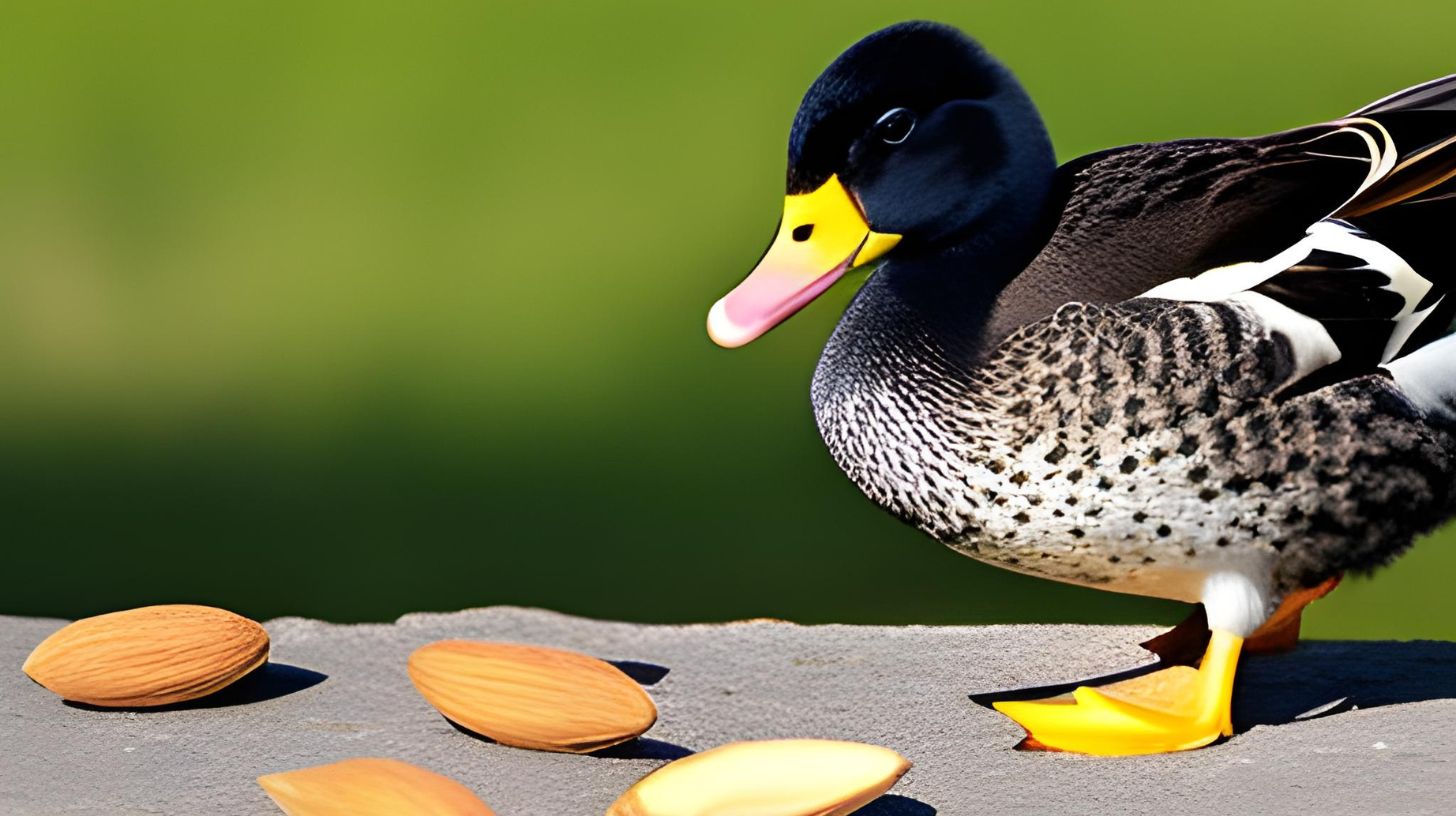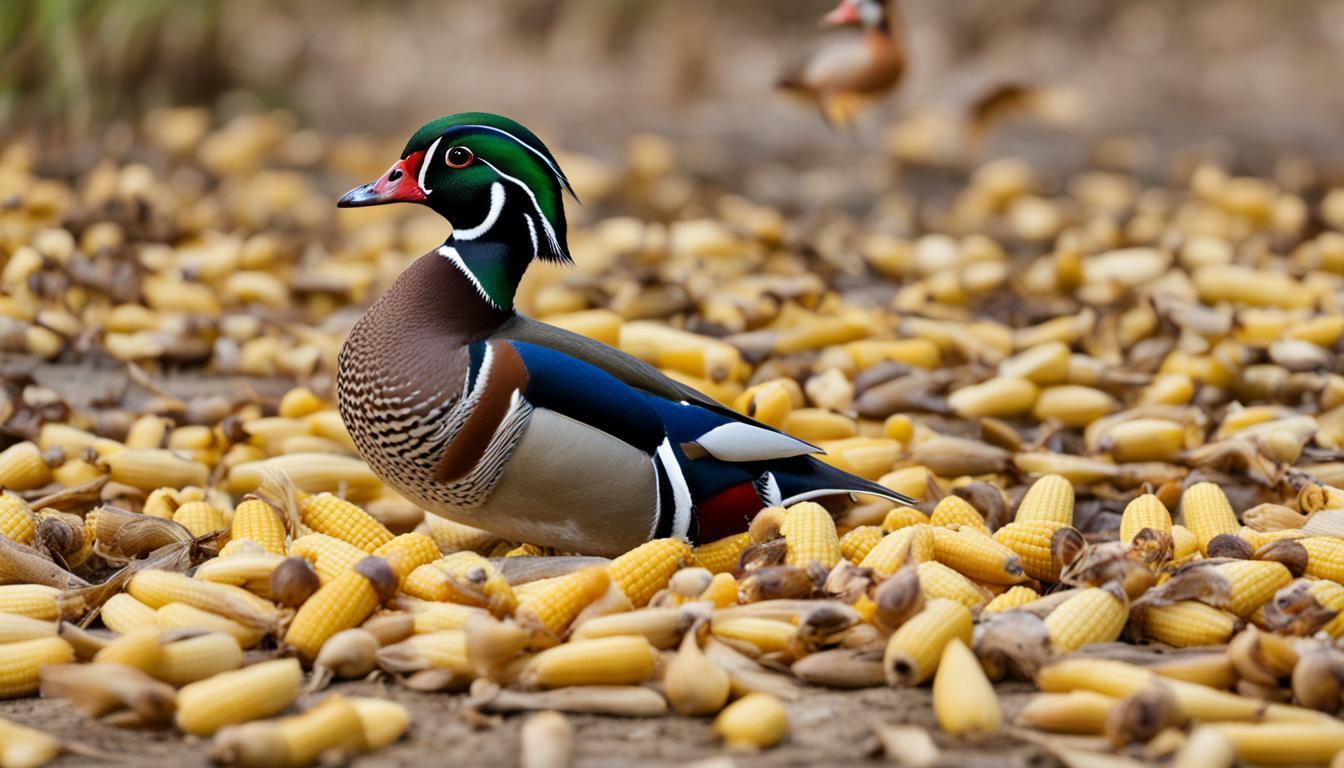Can Ducks Eat Almonds?

Table of content:
One food that duck owners often wonder about adding to their feathered friend’s menu is almonds. So can ducks eat almonds?
The short answer is yes, ducks can safely eat almonds in moderation as part of a nutritious and balanced diet. Almonds provide protein, healthy fats and nutrients that ducks need. However, proper preparation and portion control are important when feeding ducks almonds to avoid potential risks.
An Overview of Ducks’ Diets
Ducks are omnivores, meaning they eat both plant and animal materials. In the wild, ducks graze on grasses, aquatic plants, seeds, grain, insects, small fish, frogs and more. They have varied beaks and digestive systems capable of processing diverse foods.
Domestic ducks will also forage and sample a smorgasbord of offerings in addition to commercial duck feed. Owners often supplement with treats like cracked corn, oats, rice, chopped greens, fruits and veggies. Providing dietary diversity helps ensure ducks get all the amino acids, vitamins and minerals they require.
So there’s no reason plain old bird seed or bread has to be the extent of a duck’s menu. Thoughtfully selected human foods like almonds can offer great nutrition benefits.
Why Almonds Are Good for Ducks
Almonds have a stellar nutritional profile that makes them a smart supplemental food for duck health. Some of the ways almonds support duck wellbeing include:
- Protein – Almonds contain moderate amounts of highly bioavailable protein needed for growth, muscle maintenance and egg production.
- Healthy Fats – The fat in almonds is predominantly monounsaturated fatty acids that provide energy and support metabolism.
- Fiber – The skins of almonds are rich in fiber that aids digestive tract health and keeps ducks feeling full.
- Vitamins and Minerals – Almonds contain nutrients like vitamin E, magnesium, phosphorus and zinc required for duck immune function, bone strength and overall vitality.
- Antioxidants – Compounds in almonds have antioxidant effects that combat oxidative stress and inflammation.
With this stellar nutritional resume, it’s easy to see why almonds deserve a place in moderation in any duck’s balanced diet.
Potential Risks of Feeding Ducks Almonds
While almonds offer many benefits, there are some potential downsides to be aware of when sharing these tasty nuts with ducks. Risks to watch out for include:
- Choking – Whole almonds have a shape and texture that could pose a choking hazard, especially for younger ducks.
- Digestive Upset – The high fat and fiber content of almonds may cause diarrhea if overfed. Their hard shells can be difficult to break down.
- Allergic Reactions – Tree nuts are a common food allergy, and some ducks may be sensitive or intolerant.
- Toxicity – Raw almonds are safe, but salted, flavored or rancid almonds could cause salt poisoning or other illness if ingested.
- Nutritional Imbalance – Too many almonds could lead to an unbalanced diet deficient in other nutrients.
Thankfully these risks are easily managed by following some common sense feeding guidelines.
Feeding Guidelines for Ducks Eating Almonds
Here are some tips for safely incorporating almonds into a duck’s menu:
- Only feed raw, unsalted almonds to avoid toxicity.
- Introduce new foods like almonds gradually to check for allergies.
- Chop or grind almonds into small pieces to reduce choking hazard.
- Soak or sprout almonds prior to feeding to soften texture.
- Limit almond portions to treat-sized amounts, not huge daily rations.
- Mix almonds with other fresh foods to create balanced meals.
- Avoid almonds that are moldy, damaged or rancid which can cause illness.
- Watch duck’s droppings for signs of digestive upset like diarrhea.
- Adjust or discontinue almond feeding if any adverse reactions occur.
Following these precautions will allow ducks to reap the rewards of almonds safely.
Can Ducks Eat Almond Butter or Almond Meal?
Besides whole raw almonds, ducks can also eat almond derivatives like almond butter and almond meal in moderation. These forms have pros and cons to consider:
Almond Butter
- Removing the fibrous skin and grinding the nuts makes the nutrients more bioavailable.
- Creamy texture is easy for ducks to digest.
- Still has a high fat content that can cause diarrhea if overfed.
- Should be all-natural peanut butter without added salt, sugars or oils.
Almond Meal
- Made from ground, blanched almonds so the skin fiber is removed.
- Sprinkling it on food or treats reduces risk of choking.
- Retains the original almond nutrients like protein, healthy fats and vitamins.
- Processing almonds into meal destroys some of the beneficial antioxidants.
- Has a lower fat content since it contains no oils, so less risk of diarrhea.
Both almond butter and almond meal can diversify a duck’s menu as long as they are given in moderation.
Best Practices for Feeding Ducks Almonds
To ensure ducks get the benefits of almonds safely, here are some best practices to follow:
- Gradually introduce almonds mixed with familiar foods to transition.
- Focus on treats, not large daily rations which can cause overfeeding.
- Combine almonds with chopped greens, oats, rice or other fresh foods.
- Spread out almond offerings throughout the week rather than all at once.
- Soak or sprout almonds before feeding to increase digestibility.
- Grind almonds into smaller pieces if feeding whole nuts to young ducks.
- Stop feeding if you observe signs of allergic reaction or digestive upset.
- Provide plenty of fresh water to support digestion and metabolism.
- Allow foraging time so almonds are a supplement to a balanced diet.
Integrating almond feeding into the overall care routine while being attentive to duck’s response is key.
Can Ducks Eat Almond Milk?
Ducks should not drink almond milk meant for human consumption. Unlike nutritious whole or chopped raw almonds, commercial almond milk is highly processed and often contains added sugars and salt ducks cannot safely digest.
Homemade, unsweetened almond milk could be an option but provides far fewer nutrients than eating whole or ground almonds. It’s best to stick to fresh water and formula milk replacer for young ducklings.
Summary: Ducks & Almonds
In conclusion, the concise answer to “can ducks eat almonds” is yes – in moderation and with proper precautions, almonds can be a healthy supplemental food. Their stellar nutrient profile offers protein, healthy fats and vitamins to support duck health.
Practice portion control, provide mixing and variety in the overall diet, and introduce almonds gradually while monitoring response. This allows ducks to gain benefits without adverse reactions. Both whole and ground almonds can be fed safely if basic guidelines are followed.
Welcome. I’m Adreena Shanum, the proud owner of this website, and I am incredibly passionate about animals, especially poultry. I founded adreenapets.com as a labor of love, stemming from my desire to share my knowledge and experiences with poultry enthusiasts worldwide.




